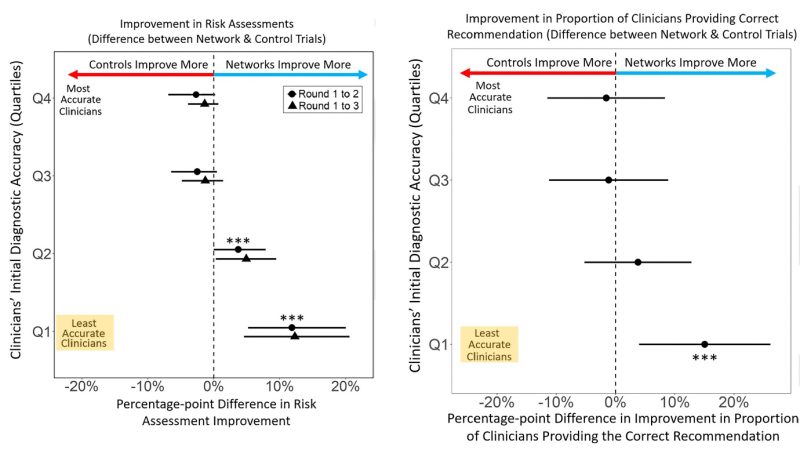A randomized trial of >3,000 physicians, with some assigned to sharing responses for medical diagnosis vignettes, demonstrates collective intelligence, especially for the least accurate doctors. Errors in clinical decision-making are disturbingly common. Recent studies have found that 10 to 15% of all clinical decisions regarding diagnoses and treatment are inaccurate. Here, a team experimentally study the ability of structured information–sharing networks among clinicians to improve clinicians’ diagnostic accuracy and treatment decisions.
They use a pool of 2,941 practicing clinicians recruited from around the United States to conduct 84 independent group-level trials, ranging across seven different clinical vignettes for topics known to exhibit high rates of diagnostic or treatment error (e.g., acute cardiac events, geriatric care, low back pain, and diabetes-related cardiovascular illness prevention). They compare collective performance in structured information–sharing networks to collective performance in independent control groups, and find that networks significantly reduce clinical errors, and improve treatment recommendations, as compared to control groups of independent clinicians engaged in isolated reflection.
The results show that these improvements are not a result of simple regression to the group mean. Instead, they find that within structured information–sharing networks, the worst clinicians improved significantly while the best clinicians did not decrease in quality. These findings offer implications for the use of social network technologies to reduce errors among clinicians:
https://www.pnas.org/doi/10.1073/pnas.2108290120

Anonymous author
